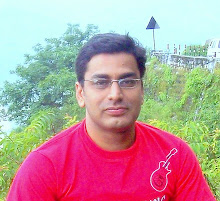State of Muslim Women
Monday, September 22, 2008
 THERE were stories of exploitation and neglect, first-hand accounts of mindless violence, and resentment at government apathy and injustice at the hands of community elders. And, of course, there were the familiar stories of police harassment after every terror attack. Over 800 Muslim women from across the country attended the All India Democratic Women’s Association’s (AIDWA) national convention of Muslim women on August 27 in New Delhi. Their testimonies defied stereotypes of the passive victim as they spoke of neglect by government agencies, of their appalling living and working conditions and of the experience of living in a patriarchal society that is insensitive to their concerns.
THERE were stories of exploitation and neglect, first-hand accounts of mindless violence, and resentment at government apathy and injustice at the hands of community elders. And, of course, there were the familiar stories of police harassment after every terror attack. Over 800 Muslim women from across the country attended the All India Democratic Women’s Association’s (AIDWA) national convention of Muslim women on August 27 in New Delhi. Their testimonies defied stereotypes of the passive victim as they spoke of neglect by government agencies, of their appalling living and working conditions and of the experience of living in a patriarchal society that is insensitive to their concerns.
The convention’s charter of demands sought recognition for India’s Muslim women as equal citizens with adequate access to education, health care and employment and asserted that their welfare was the concern of not just the community but the government as well. AIDWA president Subhashini Ali said that while Muslim women felt insecure in the context of rising communal violence, there was also an increasing awareness of their entitlements as citizens.
Among the delegates were elected women representatives, home-based workers, self-help group (SHG) workers, victims of riots and of dowry harassment, and women who had had to deal with police harassment after terror strikes. There were, too, women who had been the victims of decisions made by their own community leaders.
Shakeela, whose seven-year-old son was shot in the head by the Gujarat Police in 2002, broke down as she spoke. Mujibibi, 35, from Davangere in Karnataka, had worked for 20 years as a beedi roller, and very little in her life had changed in these 20 years. She rolls out about 1,100 beedis along with the others in her family in a day, makes Rs.45 for more than 12 hours of work, and enjoys no benefit under the special statute for beedi workers. In Harapanalli taluka, her hometown, scores of Muslim families are engaged in beedi-making. She often gets a “burning” sensation in her face, eyes and chest, an occupational hazard associated with tobacco. “I have to do it, otherwise how will I survive? I do not want my children to go through the same thing, so I have to work,” she said.
Ishrat, from Kanpur, broke down several times while narrating her story. Her husband, a former textile worker, was jobless. Like many other poor Muslim women, she lives in a cramped two-room tenement. Municipal workers, she complained, never visited “Muslim” areas.
Increasing poverty levels among Muslims in the country have led Muslim women to explore avenues to supplement family incomes. However, it is home-based work that most of them are forced to take up. This unorganised employment makes such women dependent on middlemen and a chain of employers. Naseem, a resident of Old Delhi, has worked as a handicraft worker for 22 years. In every other household in her neighbourhood, there are women trying to make a living out of zardozi work and by making envelopes, rachis, bindis and even machine parts. She herself works eight to 10 hours a day. “There are women who have been working for 35 years, and now they earn about Rs.300 a month,” she said. (The minimum daily wage in Delhi is Rs.140.) Malka, a zardozi worker from Lucknow, said she was unable to afford an education for her daughters because of the dwindling returns of the trade. “The chikan kurta sells for thousands of rupees, but we get next to nothing,” she said.



0 comments:
Post a Comment